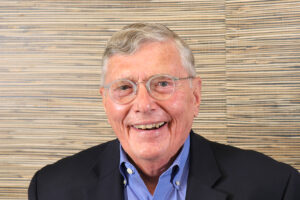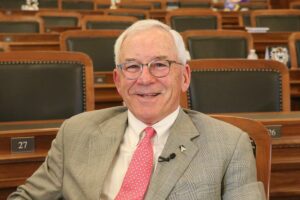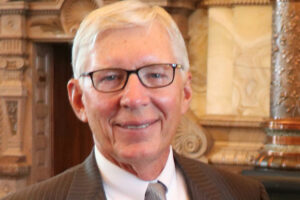Interview of Ed Berger, May 12, 2025
Interviewed by Mark Tallman
This oral history interview of Ed Berger, former State Senator and former President of Hutchinson Community College, focuses on the role of the community college in the educational system of Kansas. Community colleges were chartered in the 1960's in Kansas and required voter approval of a local referendum approved to begin operation. Seward, Barton, and Johnson counties were the last three to charter their respective community colleges in 1969. By 1990 there was a move to change governance of community colleges to the Kansas Board of Regents. That measure was not enacted. Berger's Show Moreinterview focuses on the community aspect of these institutions and how their educational goals change as community needs mature. Distance learning, technical education, and linkages with economic activity of the communities are highlighted in the interview. Berger describes his service in the Kansas Senate as it tried to unwind the "Brownback Tax Experiment" which had led to disruption of state finances. Berger's outlook is best described in this quote: "... Kansans are creative and resilient and... will find a way to adjust to it and still serve its public well..." Show Less




